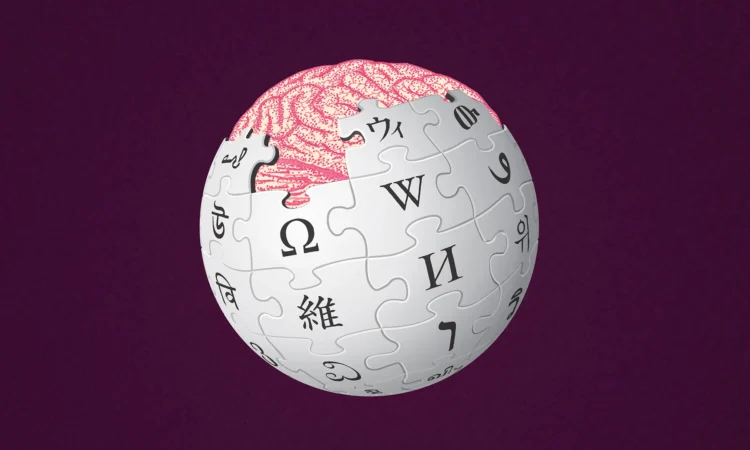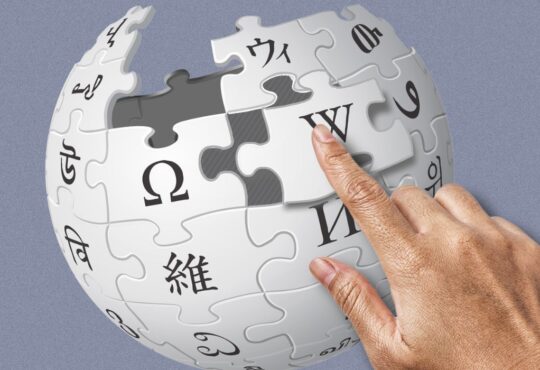Wikipedia is the world’s best online reference book, presently containing over 3.3 million English language articles. It is presumably the most significant assortment of information at any point amassed and is positively the most readily available content source ever. Anybody with the Internet can alter Wikipedia get they decide to, yet does it give reliable data? A recent report by Nature found that a determination of Wikipedia articles on logical subjects was practically identical to an expertly altered reference book, recommending a network of volunteers can create and continue shockingly precise substance.
Nevertheless, Wikipedia is your go-to website for any search query that might pop up in your head at any time. Besides providing information from a wide array of subjects, Wikipedia includes content that is extracted from credible sources. So, don’t worry if you have a term paper or a research article to write on. Wikipedia has got you covered. But do you sometimes wonder about those brilliant minds behind that impressive content creation?
Let’s find out about them in this blog…
Benefits of Becoming a Wikipedia Editor
- Helps maintain high standards.
- Quality of content maintained.
- The chances of error get reduced.
- It helps reduce vandalism.
- It saves time and effort if hired by an agency.
- Bulk content can be managed easily.
Who Writes for Wikipedia?
This is funny; anybody can – it’s available to everyone and can be edited by anyone at any time. But there are some rules and procedures that you must adhere to; otherwise, you won’t be able to get access to articles that you wish to edit. Moreover, Wikipedia’s administrators only protect those pages which are subjected to vandalism. Also, feel free to level up your editing skills from this prestigious website. You would need to create an account, and then you would be good to go!
But now you must be confused as it’s quite natural not to know where to start. Follow some rules and guidelines given:
1. You Need First to Register an Account
Creating an account marks the very first step of your Wikipedia editing journey. Moreover, right off the bat, it offers you protection and security. While you can alter a Wikipedia article without registering, it’s anything but a smart thought. The site regularly bans all known open IPs (counting VPN clients) from altering, which is justifiable given the sheer volume of spam. That is why the most effortless way to alter articles is to make your own Wikipedia account initially. Giving an email address is discretionary. However, it spares you a ton of time over the long haul. If you require help setting up an account, then hire Wiki experts for this purpose.
2. Get to Know Your Audience
Wikipedia isn’t essentially focused on the expert audience; hence, the degree of specialized detail in its articles must be adjusted against the capacity of non-specialists to comprehend those subtleties. While contributing rational content, envision you have been entrusted with composing an extensive logical audit for a secondary school audience. While crafting a Wikipedia athlete’s profile, ensure you have enough knowledge of sports and athletes. It may be shockingly testing clarifying complex thoughts in an open language freeway. Be that as it may, it merits constancy. You will receive the rewards for composing your next composition or encouraging a college course.
3. Always Learn the Five Pillars
Every website has got some foundations on which it is built. Wikipedia has also got some. All editors must learn these five pillars, I believe if they wish to succeed. Wikipedia is not a place to publish your pet stories, nor is it a place for you to promote your thoughts and verdicts. All information about creating an article on this website must be extracted from credible sources. All sorts of content published on this website is addressed to a non-expert audience and should be non-promotional. In this regard, Wikipedia, in a general sense, contrasts with different kinds of new media, for example, blogs that energize editorializing.
When you contribute to Wikipedia, make sure you enjoy the journey! It would serve as a platform to express your excitement for science. One more thing to be mindful of while editing is respecting other editors and refraining from using abusive language. This could jeopardize your reputation in the Wikipedia community. If you start to locate a specific connection unpleasant, permanently log off and return some other time.
4. Do Not Violate the Copyright
With specific conditions, practically all of Wikipedia’s content is free for anybody to reuse, adjust, and disseminate. However, it never approves of content coming from copyright sources. So be careful about that. Along these lines, although it might be enticing, abstain from copying content or figures from your most recent survey article (or anybody else’s) into Wikipedia. It will rapidly be distinguished as copyright infringement and hailed for surefire erasure.
You can authorize Wikipedia to utilize material you own, yet this procedure is non-reversible and tedious. It is frequently better to change the content in more straightforward language or redraw the figure to make it increasingly available.
5. Always Cite
To keep up the highest standards, Wikipedia has an exacting incorporation strategy that demands verifiability. So, when readers read the content, they know it’s coming from a credible source. Most researchers are in the lucky situation of approaching a vast assemblage of writing and involvement with utilizing inline references to help their composition since non-credible content might be expelled from Wikipedia whenever they give supporting references to each explanation that may be tested by another editorial manager sooner or later, at whatever point possible, offer inclination to auxiliary sources, (for example, audits or book sections) that review the pertinent essential research over research articles themselves.






